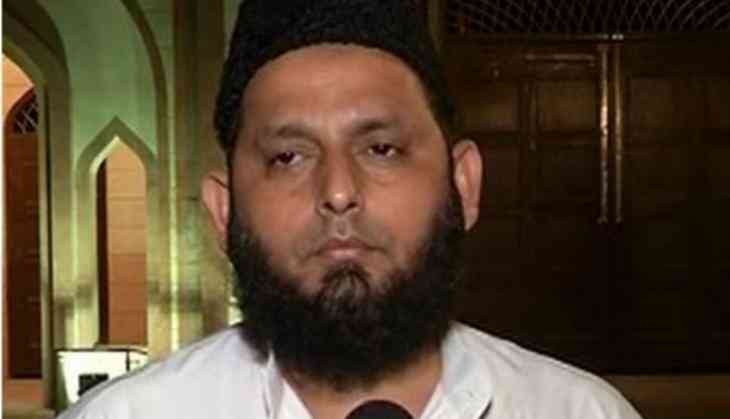
As the Supreme Court is set to announce its verdict on Triple Talaq on Tuesday, the All India Muslim Personal Law Board (AIMPLB) expressed confidence that the apex court would not interfere in Muslim Personal Law and would not ban the Islamic practice of divorce.
Speaking to ANI, member of AIMPLB and Muslim cleric Maulana Khalid Rashid Firangi Mahali said that whatever judgement the apex court pronounces it will be in the light of the Constitution of the country.
"We have put forth our view in light of Quran and we are confident enough that whatever will be the judgement of the court, it will naturally be in the light of the Constitution of our country. Our Constitution has given every citizen a right to follow and propagate religion of one's choice. So as far as law of triple talaq is concern, it is part of our Shariat and we think the court will not interfere in Muslim Personal law," the Lucknow-base Muslim cleric said.
Another Muslim cleric Maulana Sajid Rashidi, however, said that the apex court would not pronounce final verdict and extend the matter till 2019.
"I don't think Supreme Court will pronounce its final verdict on Triple Talaq on Tuesday. Many important points of Islam and Quran have not been put up before the Supreme Court as yet. This matter will continue till 2019 as the BJP is also trying to give it a political colour and wants to vote bank politics over this issue. The apex court will adjourn the matter and fix another date for the further hearing," he told ANI.
The apex court will on Tuesday pronounce its verdict on the controversial issue of Triple Talaq.
A five-judge constitution bench headed by Chief Justice J.S. Khehar had reserved its verdict on May 18 after a six-day marathon hearing.
During the hearing, Attorney General Mukul Rohatgi had assured the apex court that the government would come out with a law to regulate marriage and divorce among Muslims if triple talaq is upheld as invalid.
Rohatgi also conveyed to the apex court bench that triple talaq violates Muslim women's right to equality within the community and also within the country.
Earlier in the hearing, the apex court refused to hear all the three cases of polygamy, nikah and halala at once, saying it will focus on one matter at a time.
The Centre, earlier on May 11, told the apex court that it opposes the triple talaq practice and wants to fight for women equality and gender justice.
However, the AIMPLB counsel Kapil Sibal told the apex court that triple talaq is a matter that comes under the Muslim Personal Law Board and therefore, in his opinion, the top court should not interfere in it.
While hearing several pleas filed by Muslim women challenging the practice of triple talaq, the apex court observed that it would examine whether the issue is fundamental to religion or not.
Relentless debates on the validity and plausibility of this practice were instigated soon after one petitioner, Shayara Banu, challenged the Muslim Personal Law over instantaneous application of triple talaq (talaq-e-bidat), polygamy and nikah-halala.
Supporting the stance of ending the practice of triple talaq, the Allahabad High Court had earlier asserted that the rights of any person, including Muslim women, cannot be violated in the name of 'Personal Law'.
In December last year, the Allahabad High Court termed the Islamic practice of divorcing a woman by uttering the word "talaq" thrice "unconstitutional".
-ANI


